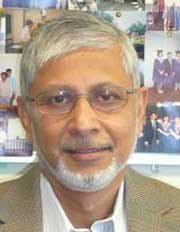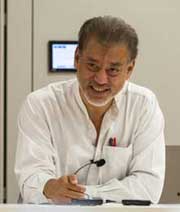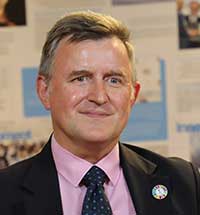[ad_1]
SYDNEY and KUALA LUMPUR, Jul 26 (IPS) – Like so many others, Africans have long been misled. Alleged progress under imperialism has long been used to legitimize exploitation. Meanwhile, Western colonial powers have been replaced by neo-colonial governments and international institutions serving their interests.
‘Shithole’ pots of gold
US President Donald Trump’s “shitholes”, mainly in Africa, were and often still are ‘pots of gold’ for Western interests. From 1445 to 1870, Africa was the major source of slave labour, especially for Europe’s ‘New World’ in the Americas.

The ‘scramble for Africa’ from the late nineteenth century saw European powers racing to secure raw materials monopolies through direct colonialism. Western powers all greatly benefited from Africa’s plunder and ruin.
European divide-and-conquer tactics typically also had pliant African collaborators. Colonial powers imposed taxes and forced labour to build infrastructure to enable raw material extraction.
Racist ideologies legitimized European imperialism in Africa as a “civilizing mission”. Oxford-trained, former Harvard history professor Niall Ferguson – an unabashed apologist for Western imperialism – insists colonialism laid the foundations for modern progress.
Richest, but poorest and hungriest!
A recent blog asks, “Why is the continent with 60% of the world’s arable land unable to feed itself? … And how did Africa go from a relatively self-sufficient food producer in the 1970s to an overly dependent food importer by 2022?”
Deeper analyses of such uncomfortable African realities seem to be ignored by analysts influenced by the global North, especially the Washington-based international financial institutions. UNCTAD’s 2022 Africa report is the latest to disappoint.

With 30% of the world’s mineral resources and the most precious metal reserves on Earth, Africa has the richest concentration of natural resources – oil, copper, diamonds, bauxite, lithium, gold, tropical hardwood forests and fruits.
Yet, Africa remains the poorest continent, with the average per capita output of most countries worth less than $1,500 annually! Of 46 least developed countries, 33 are in Africa – more than half the continent’s 54 nations.
Africa remains the world’s least industrialized region, with only South Africa categorized as industrialized. Incredibly, Africa’s share of global manufacturing fell from about 3% in 1970 to less than 2% in 2013.
About 60% of the world’s arable land is in Africa. A net food exporter until the 1970s, the continent has become a net importer. Structural adjustment reform conditionalities – requiring trade liberalization – have cut tariff revenue, besides undermining import-substituting manufacturing and food security.
Sub-Saharan Africa accounts for 24% of the world’s hungry. Africa is the only continent where the number of undernourished people has increased over the past four decades. About 27.4% of Africa’s population was ‘severely food insecure’ in 2016.
In 2020, 281.6 million Africans were undernourished, 82 million more than in 2000! Another 46 million became hungry during the pandemic. Now, Ukraine sanctions on wheat and fertilizer exports most threaten Africa’s food security, in both the short and medium-term.
Structural adjustment
Many of Africa’s recent predicaments stem from structural adjustment programs (SAPs) much of Africa and Latin America have been subjected to from the 1980s. The Washington-based international financial institutions, the African Development Bank and all donors support the SAPs.
SAP advocates promised foreign direct investment and export growth would follow, ensuring growth and prosperity. Now, many admit neoliberalism was oversold, ensuring the 1980s and 1990s were ‘lost decades’, worsened by denial of its painfully obvious consequences.
Instead, ‘extraordinarily disadvantageous geography’, ‘high ethnic diversity’, the ‘natural resource curse’, ‘bad governance’, corrupt ‘rent-seeking’ and armed conflicts have been blamed. Meanwhile, however, colonial and neo-colonial abuse, exploitation and resource plunder have been denied.
While World Bank SAPs were officially abandoned in the late 1990s following growing criticism, replacements – such as Poverty Reduction Strategy Papers – have been like “old wine in new bottles”. Although purportedly ‘home-grown’, they typically purvey bespoke versions of SAPs.
With trade liberalization and greater specialization, many African countries are now more dependent on fewer export commodities. With more growth spurts during commodity booms, African economies have become even more vulnerable to external shocks.
Can the West be trusted?
Earlier, G7 countries reneged on their 2005 Gleneagles pledge – to give $25 billion more yearly to Africa to ‘Make Poverty History’ – within the five years they gave themselves. Since then, developed countries have delivered far less than the $100 billion of climate finance annually they had promised developing nations in 2009.
The Hamburg G20’s 2017 ‘Compact with Africa’ (CwA) promised to combat poverty and climate change effects. In fact, CwA has been used to promote the business interests of donor countries, particularly Germany.
Primarily managed by the World Bank and the International Monetary Fund, CwA has actually failed to deliver significant foreign investment, instead sowing confusion among participating countries.
Powerful Organization for Economic Cooperation and Development governments successfully blocked developing countries’ efforts at the 2015 Addis Ababa UN conference on financing for development for inclusive UN-led international tax cooperation and to stem illicit financial outflows.
Africa lost $1.2–1.4 trillion in illicit financial flows between 1980 and 2009 – about four times its external debt in 2013. This greatly surpasses total official development assistance received over the same period.
Africa must unite
Under Nelson Mandela’s leadership, Africa had led the fight for the ‘public health exception’ to international intellectual property law. Although Africa suffers most from ‘vaccine apartheid’, Western lobbyists blocked developing countries’ temporary waiver request to affordably meet pandemic needs.
African solidarity is vital to withstand pressures from powerful foreign governments and transnational corporations. African nations must also cooperate to build state capabilities to counter the neoliberal ‘good governance’ agenda.
Africa needs much more policy space and state capabilities, not economic liberalization and privatization. This is necessary to unlock critical development bottlenecks and overcome skill and technical limitations.
IPS UN Bureau
Follow @IPSNewsUNBureau
Follow IPS News UN Bureau on Instagram
© Inter Press Service (2022) — All Rights ReservedOriginal source: Inter Press Service
[ad_2]
Source link








